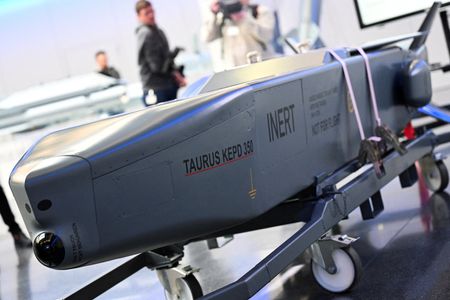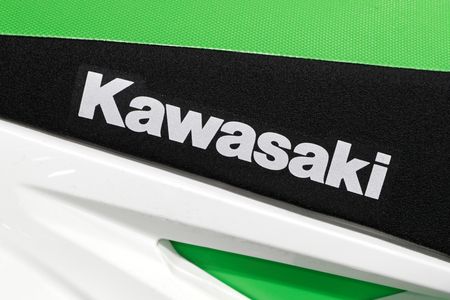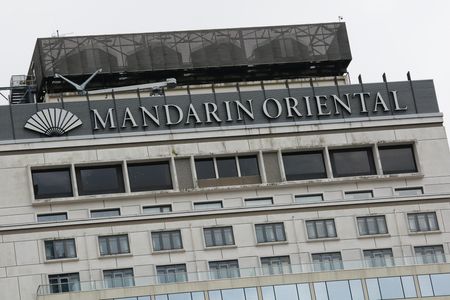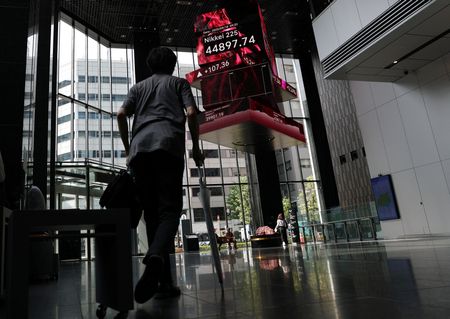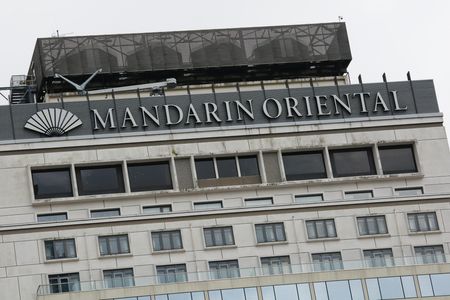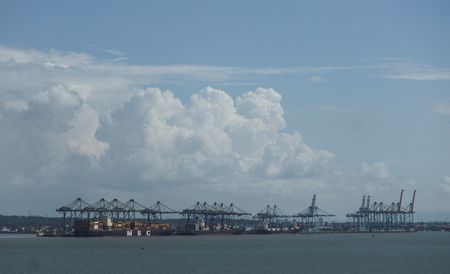By John Geddie and Nobuhiro Kubo
TOKYO (Reuters) -Japan’s Kawasaki Heavy Industries is in talks to co-develop new engines for Germany’s Taurus cruise missiles, two sources familiar with the matter said, another potentially significant step in Tokyo’s retreat from decades of pacifism.
The Japanese contractor signed a memorandum of understanding on the project on the sidelines of a defence show in Tokyo in May, said the sources, speaking on condition of anonymity due to the sensitivity of the issue.
Kawasaki declined to comment. A spokesperson for European defence company MBDA, which builds the weapon, said it was not able to provide any comment on the matter at this time.
EXCEPTIONS TO ARMS EXPORT RULES
The air-launched missiles have been at the centre of a public debate in Germany after Chancellor Friedrich Merz earlier this year said he would not rule out sending the weapons to Ukraine to bolster Kyiv’s fight against Russia, which invaded in 2022.
Moscow said it would consider Berlin to be directly involved in the war if it agreed to Kyiv’s repeated requests for the weapons, which have a range in excess of 500 kilometres (311 miles).
The involvement of a Japanese partner could further complicate matters due to Tokyo’s ban on transfers of weapons to countries in conflict.
Japan, however, has made several exceptions to its arms export rules in recent years as part of a broader retreat from the pacifist stance it adopted after its defeat in World War Two and attempts to bolster its defence industry.
The co-development framework may give it more wiggle room.
For example, Tokyo last year tweaked its rules to allow exports of a jet fighter it is developing with Britain and Italy.
In 2023, it revised its rules to ship Patriot missiles built under licence in Japan to the United States. But those changes required any re-export to third countries to be agreed by Tokyo.
Japan’s ATLA, a government agency which oversees Japan’s defence industry, declined to comment on specific cases. The agency said it will rigorously examine any potential transfer of equipment or technology in accordance with its rules.
LIGHTER, MORE EFFICIENT ENGINES
The German government plans to seek parliamentary approval by the end of the year for defence projects including the modernisation of Taurus missiles, Reuters reported last month.
Germany’s military plans to purchase some 600 of the new missiles, called Taurus NEO, with deliveries expected to begin in 2029, according to media reports. Spain and South Korea also use Taurus missiles.
It is unclear whether the tie-up with Kawasaki relates to the new model, but one of the sources said the Japanese firm had been sought out due to its abilities to build a lighter and more efficient engine.
Kawasaki is testing a new small turbofan engine that will power a long-range anti-ship missile it is developing for Japan’s military.
American firm Williams International, which supplies engines for the current Taurus KEPD 350 model, did not immediately respond to a request for comment.
Japan and Germany have in recent years embarked on efforts to diversify their defence suppliers, with both heavily dependent on the United States.
(Additional reporting by Tim Kelly in Tokyo, Sabine Siebold in Berlin and Mike Stone in Washington; Editing by Kate Mayberry)

